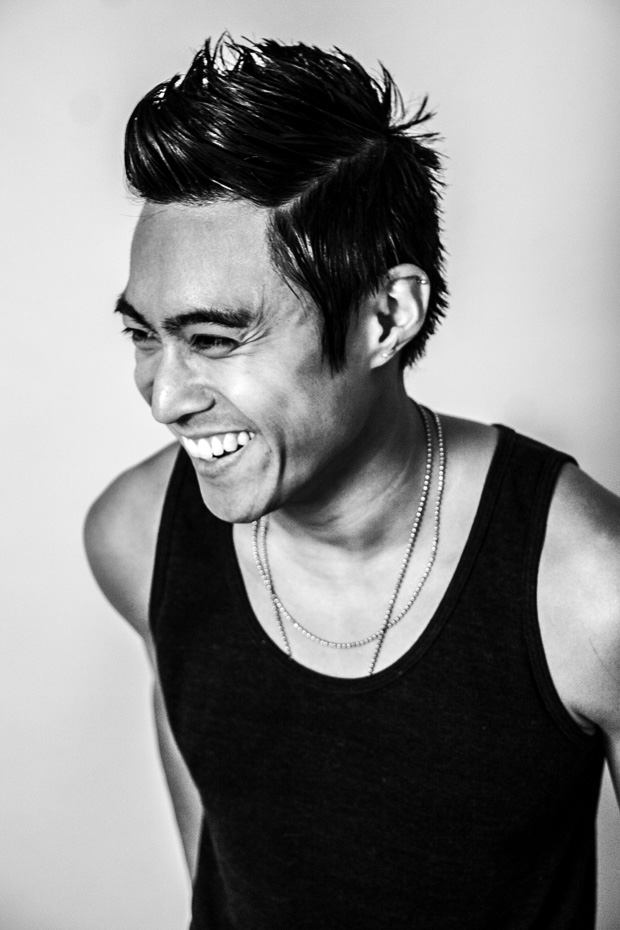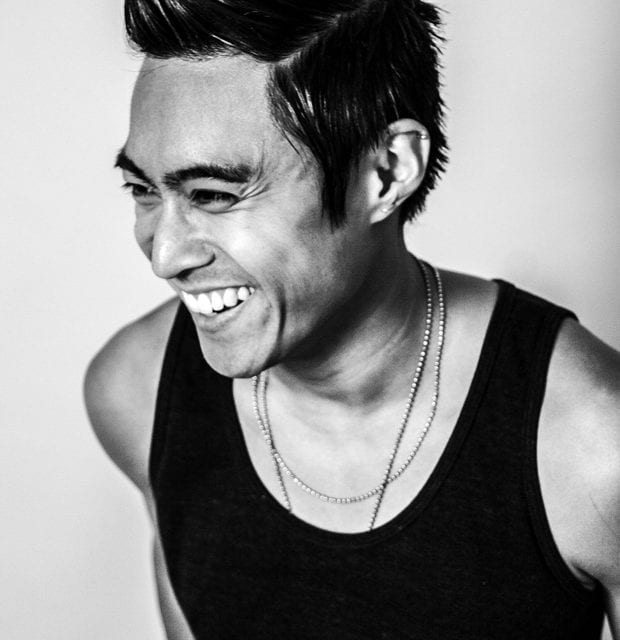AFFD screens 2 films by Asian directors exploring gay themes

GAYSIAN FLICKERS Austin-based filmmaker PJ Raval, right, looks into aging as a gay man; in Arvin Chen’s comedy, a group of gay men (below) help a sad-sack win back his fiancee, whose brother is still in the closet.
There are, of course, gay film festivals, but increasingly you see gay-themed films make their way into other fests. That’s certainly true of the Asian Film Festival of Dallas, which launched its 12th annual edition this week. Two of the movies screening — the documentary Before You Know It from gay Austin-based director PJ Raval and the comedy feature Will You Still Love Me Tomorrow? from Taiwanese director Arvin Chen — address gay issues: the former about what it’s like to grow old in the gay world, and the latter about a late-in-life romance (and how gay men can even teach a straight guy how to woo a woman).
We sat down with the directors of both films to get their insights into their movies (both of which are excellent).
Tickets and passes for the entire festival are available at AsianFilmDallas.org.
— Arnold Wayne Jones
Arvin Chen, director of Will You Still Love Me Tomorrow?
Dallas Voice: Your film is a late-in-life coming out story about a married middle-aged man named Weichung who finally admits he’s gay. But it’s also about his wife Feng’s unhappiness and his sister’s ex-fiance, San-San, who wants to win her back. What attracted you to these stories? Arvin Chen: What really attracted me was just the idea of finding love later in life, that someone who had thought he had to give up love in order to have a family realizing he still needs love (even though he seems happily married). I think this is the case not only for Weichung, but also Feng.
Is aging in a culture one of your interests in this film? I’m still in my 30s, but getting older, I’ve started to see myself and many people around me —struggling to balance romance, their personal ambitions and a happy home life. I could only imagine how much more difficult it would be to find this balance as a closeted middle-aged gay man living in Asia.
Is living on the down-low something present in Taiwanese culture? It’s definitely prevalent in Asia, where homosexuality is still probably less accepted culturally, and traditional family structures are so important. The premise of the story came from a gay friend of mine in Taiwan, who told me that a lot of his older friends are living on the down-low. In most cases, they are probably less like our main character in that they do continue to live a secret gay life, as opposed to Weichung, who attempts to close off that part of his life once he’s married.
There’s a sweet tone that reminds me of mid-career Woody Allen. Were his films an influence? It’s a bit embarrassing because it’s probably so obvious, but Woody Allen is one of my favorite directors, with Manhattan being my favorite film of all time. I try not to rip him off completely, but he’s really too big of an influence on me. More specifically, I even made our crew watch Hannah and Her Sisters in pre-production to kind of get a sense of the movie I wanted to make — the balance of comic subplot with melodrama, the multiple stories, scenes of home life, story structure, etc.
What has been the reaction of straight audiences? Pretty good, so far, especially in Asia, which is a bit of a pleasant surprise. I think the subject matter itself may have kept a few people away from the theaters, but in the screenings I’ve sat in on, audiences have been very receptive, with even a few cheers and clapping the first time Weichung and Thomas kiss. One of my goals for this movie — which I don’t know if I achieved — is that it wouldn’t be thought of only as a straight or gay movie.
The overarching theme of the film seems to be about freedom — embracing who you are, for good or bad. I totally agree! For me, the movie is about everyday people just struggling to find happiness and love, and there are inevitably some hurdles in that struggle — whether you’re a closeted gay man, a housewife or a neurotic fiancée. I thought that this would be a way to make Weichung’s second coming out something more universal. Of course, he has specific issues because of who he is, but so does everyone around him.
Screens July 15 at 7 p.m.
 PJ Raval, director of Before You Know It
PJ Raval, director of Before You Know It
Dallas Voice: Your film profiles three elderly gay men. Acknowledging that your topic is a shockingly underreported-upon segment of the community, you’re still a young man — what attracted you to this story? PJ Raval: The inspiration came in 2008, when I was touring with my last film, Trinidad, a documentary that follows three transgender women living in the small town of Trinidad, Colo., known as the “sex change capital of the world.” [At a screening in Upstate New York], there was a good turnout of LGBT community members, and surprisingly, they were almost exclusively seniors! At that moment I realized how little I’d seen or heard of them as a community, and I started to question why. Around this same time, my mother and I started having conversations about her thoughts on retiring and the financial and emotional challenges involved. As a member of the LGBT community, I wondered what things would be like when I’m over 65. So I set out to make this film to find out for myself.
Your subjects are from all over, including the owner of the gay bar Robert’s Lafitte in Galveston. How did you track down your subjects? I cast a wide net when searching for subjects to follow. I wanted to go out into the community and see who I naturally gravitated toward. Through online research I found Rainbow Vista LGBT Senior Active Living Facility [where one subject, Dennis, lives]. Six months later we got in touch with Service and Advocacy for GLBT Elders [SAGE, where subject Ty works]. We filmed [those] two stories pretty extensively for several months but always knew we wanted a third storyline in a more overlooked area. For years I had heard about the gay bars in Galveston and that the island was home to a lot of retired people. On a hunch, we made a research trip [there] and within 24 hours I met Robert at his bar, and we found our Texas story!
Tell me about your experience at Robert’s Lafitte, which is a cultishly legendary gay bar. It is really a special and unique place. For some it’s home, for some it’s a place to discover who they really are and for some it’s a fun place to live life to the fullest. [During Hurricane Ike], when the rest of the island was closed down, Robert’s Lafitte remained open — the only thing on the island that was — and they pooled together resources and invited everyone over for a warm meal, drink and, of course, entertainment. All the drag queens dressed up inspired by Tina Turner and put on a show called “Ike Couldn’t Beat Me Down.” No joke!
Screens July 17 at 5:30 p.m.
This article appeared in the Dallas Voice print edition July 12, 2013.


